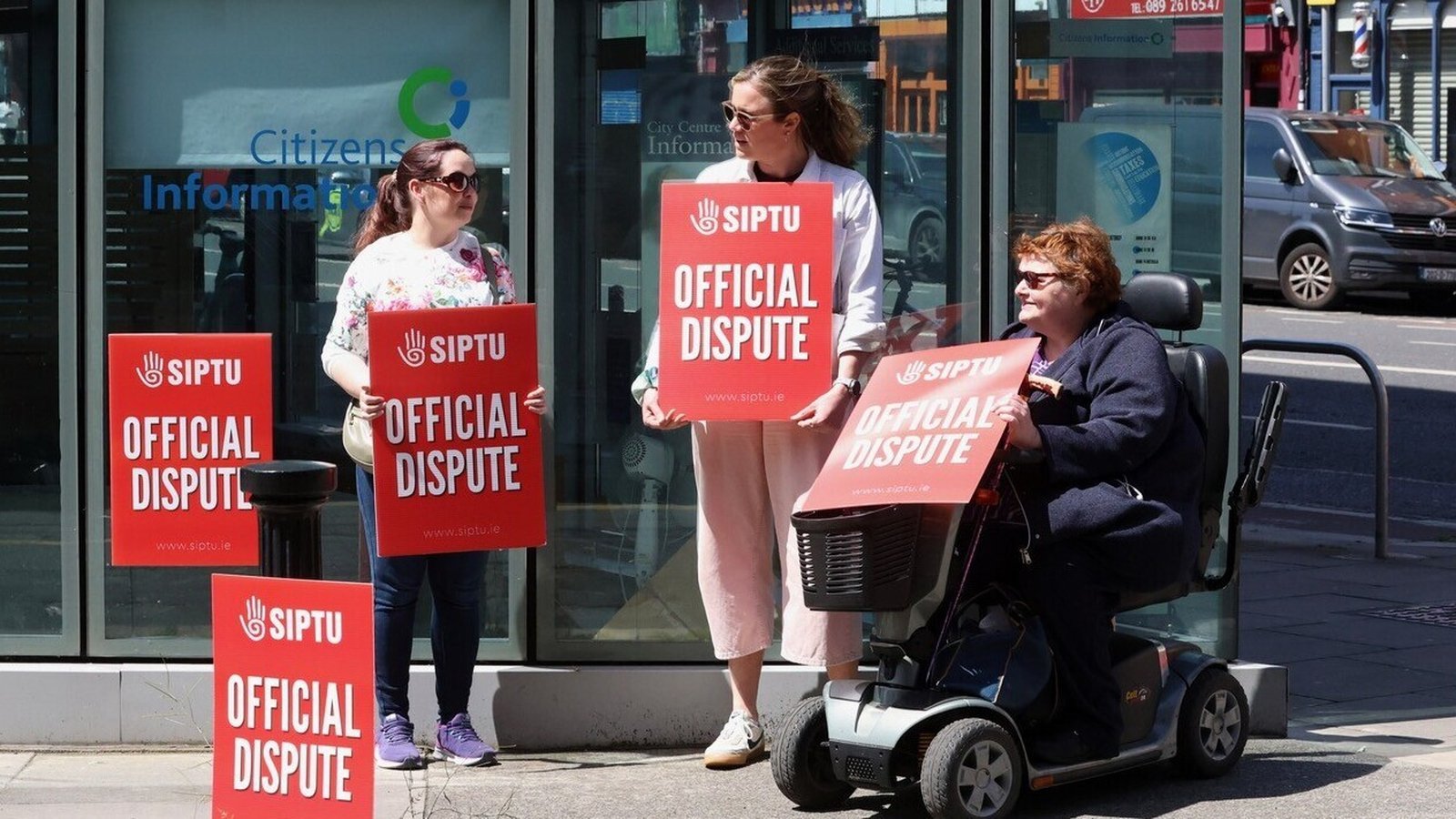World
Strike action resumes at National Advocacy Service

SIPTU members employed at the National Advocacy Service (NAS) have resumed strike action as part of a pay dispute.
NAS provides assistance to more than 1,500 disabled people each year with in-person advocacy interventions in areas including housing, access to justice, health care, safeguarding and supporting in decision making.
SIPTU represents 43 of the 48 staff members at the organisation.
Pickets have been placed at NAS locations across the country as part of the strike.
The workers paused industrial action on 12 June to allow for talks aimed at resolving the dispute but SIPTU has accused management of failing to adhere to a Labour Court recommendation on pay and conditions.
“After several days of talks between SIPTU representatives, National Advocacy Service management, the Citizens Information Board and Department of Social Protection officials, the funders of the organisation, it became clear that the commitment to implement fully the necessary changes in pay and conditions was being reneged on,” said SIPTU Deputy General Secretary John King.
“This situation is unacceptable and undermines the proper conduct of industrial relations,” Mr King said.
The workers will be protesting outside the Dáil tomorrow to call on the Government to work to resolve the dispute.
NAS wages are set by its funder, the Citizens Information Board which receives its funding from the Department of Social Protection.
The National Advocacy Service said discussions are ongoing to try and find an agreed position to bring the dispute to an end.
NAS said it is extremely mindful of the repercussions the strike will have on its service users.
“We deeply regret the inconvenience this strike action will cause to those who rely on our service,” said Joanne Condon, NAS National Manager.
“Every effort is being made to engage in constructive dialogue with all parties to resolve this situation as swiftly as possible.”
“We are hopeful that through continued negotiation, a solution that respects and values the vital contributions of our dedicated staff while ensuring the continuity of the critical services we provide can be found,” Ms Condon said.










